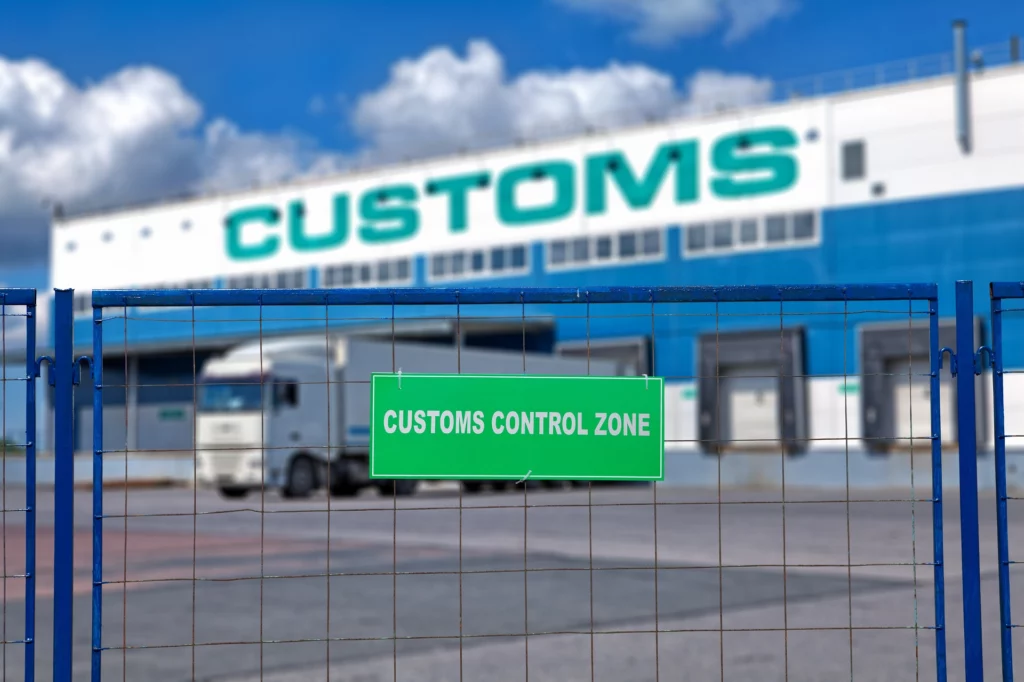What is CTPAT Certification, and Do You Need It?

Wise Systems

Safety and security are top priorities for most logistics companies. With the help of the U.S. Customs and Border Protection, logistics companies can enhance their security strategies by earning CTPAT certification, a voluntary credential with numerous benefits, like front-of-the-line border inspections and the help of a dedicated security specialist.
In this guide, we’ll explore CTPAT (Customs Trade Partnership Against Terrorism) Certification, the benefits of pursuing certification, how to earn certification, and more.
In this article:
- What Is CTPAT Certification?
- Who Needs CTPAT Certification?
- The Benefits of CTPAT Certification
- How to Earn and Maintain CTPAT Certification
- Should You Become a CTPAT Member?
- Frequently Asked Questions
What Is CTPAT Certification?
Customs Trade Partnership Against Terrorism, or CTPAT, is a program created by the U.S. Customs and Border Protection (CBP) to improve border security while maintaining a safe and reliable supply chain. Logistics and supply chain companies can earn CTPAT certification to receive member benefits that help them mitigate risks and improve their own supply chain strategies.
Who Needs CTPAT Certification?

CTPAT is a voluntary program, so supply chain and logistics organizations can choose whether to pursue CTPAT certification. Importers and exporters, like terminal operators, rail carriers, and cross-border highway carriers, can become CTPAT-certified. Importers are the most common companies to receive CTPAT certification.
The Benefits of CTPAT Certification
The primary benefit of CTPAT certification is that certified companies play a significant role in making borders safer. Companies volunteering for certification must meet specific guidelines proving their dedication to border safety and fighting terrorism.
In exchange for entering this voluntary program and adhering to important safety guidelines, the CBP offers several benefits to certified companies, including easier border inspections, which allow for reduced wait times. This benefit alone can improve the speed and reliability of an organization’s supply chain.
Companies also receive a designated Supply Chain Security Specialist for their case. This specialist is employed by the CTPAT program but works directly with a company to help them maintain their certification and address any potential security vulnerabilities. This, like other benefits of the program, is free to certified companies.
Certified organizations also receive access to CTPAT’s online resources and CTPAT-exclusive events, possible exemption from CBP exams, and eligibility for governmental pilot programs designed to improve supply chain security.
How to Earn and Maintain CTPAT Certification

Eligible companies interested in receiving CTPAT certification can apply online. After completing the application, a company must complete its supply chain profile online, detailing the necessary steps to meet the criteria set by the CTPAT certification program.
After completing these steps, the CBP assigns the company a Supply Chain Security Specialist as a guide for the program. This specialist remains in that position to assist the company for as long as it’s certified.
The precise requirements for CTPAT eligibility vary slightly between different types of businesses, such as importers and exporters. Third-party logistics providers must meet the following requirements:
- Have a staffed office within the United States
- Have a license or bond with a relevant government agency, like the Transportation Security Administration
- Name a designated security officer responsible for CTPAT compliance
- Handle international cargo rather than domestic-only
- Allow subcontracting to other CTPAT members only
- Have no financial debt to CBP
- Agree to the voluntary participation guidelines
- Complete and maintain a supply chain profile with the CBP
Organizations interested in CTPAT certification, like air carriers, exporters, sea carriers, and marine port authority and terminal operators, can find specific eligibility criteria on the CBP website. Organizations must meet each criterion before applying for certification.
Should You Become a CTPAT Member?
Because CTPAT certification is 100% voluntary, you might decide not to take the steps to earn it. However, transportation and logistics companies can significantly benefit from CTPAT certification.
First, CTPAT certification can improve rapport with customers and clients. This certification highlights companies that are dedicated to border security and the war on terrorism. Clients with knowledge of CTPAT certification understand that companies must comply with strict security standards to remain in the program—something many would want to see in a logistics partner.
CTPAT certification also comes with several benefits for certified companies, including helpful learning materials, easier border processes, and a designated security specialist. The program is free, so certified companies don’t need to pay annual fees to maintain their membership and benefits.
Learn more about the CTPAT program and whether it’s right for your organization.
Last-mile delivery businesses must keep up with demand while keeping customers happy with on-time, efficient deliveries. Check out our latest blog on fleet route optimization, and opportunities to transform last-mile delivery for your business. Read here! https://t.co/yBM63uApCo pic.twitter.com/l289WNIBDN
— Wise Systems (@goWiseSystems) March 7, 2023
For last-mile delivery providers, CTPAT is valuable if you’re transporting goods across borders. It also makes sense to partner with CTPAT-certified freight forwarders and logistics providers that handle the earlier legs of the supply chain.
Much like CSA scores indicate safe motor carrier operation, CTPAT certification adds confidence that regulatory issues won’t hold up inventory at the border or in customs processing. That means inventory will be available at distribution centers as planned, allowing you to continue to meet and exceed your customers’ last-mile delivery expectations.
The Wise Systems delivery automation platform provides a complete solution for streamlining your last-mile delivery operations. From monitoring driver performance to strategic planning tools, route optimization tools, and more, Wise Systems offers a solution to fine-tune every facet of last-mile delivery. Request a demo today to learn more.
Frequently Asked Questions
What does it mean to be CTPAT compliant?
CTPAT compliance refers to the eligibility and security guidelines a company must meet to receive CTPAT—Customs Trade Partnership Against Terrorism—certification. This certification deems a company compliant with processes affecting border security. CTPAT-certified companies remain compliant with the help of an assigned Supply Chain Security Specialist, who helps companies address security concerns.
Are all logistics companies required to participate in CTPAT?
No, CTPAT certification is entirely voluntary. However, logistics companies should consider becoming CTPAT-certified to access exclusive benefits, like quicker border inspections and wait times and possible exemption from CBP exams.
Are there professional development events for CTPAT partners?
Yes, certified CTPAT companies access exclusive events held by the CBP and its partners, like workshops and video presentations. These events typically happen a few times yearly, and some are virtual for convenient access from anywhere.

